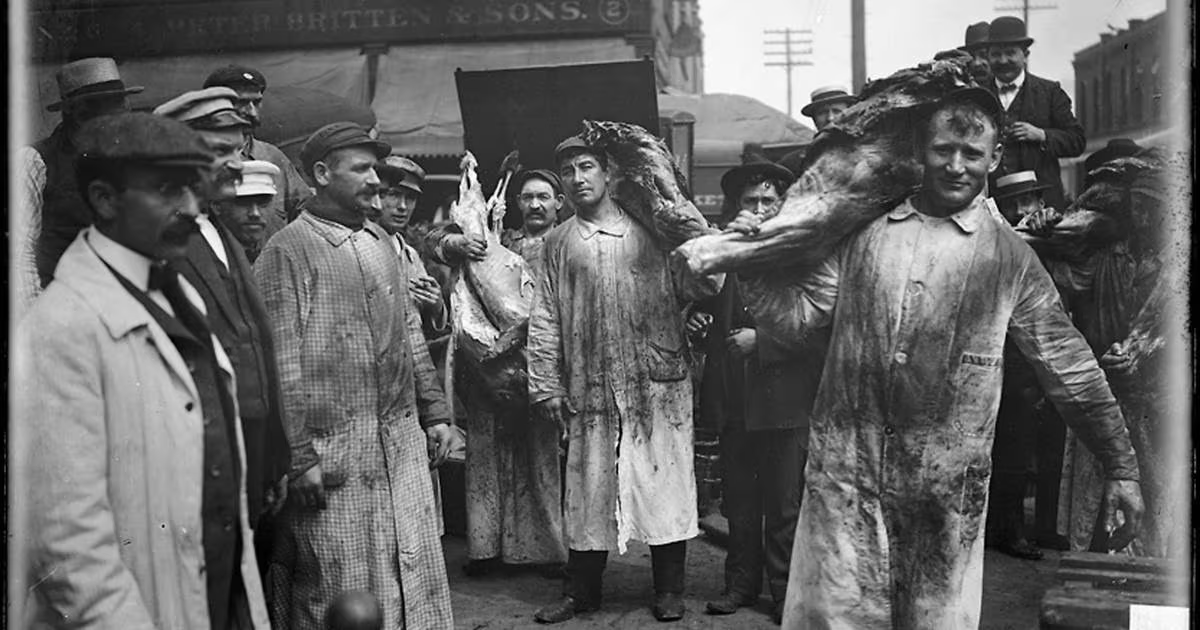
Meatpackers seen at the stockyards circa 1904. Chicago History Museum.
“I AIMED AT THE PUBLIC'S HEART, AND BY ACCIDENT
I HIT IT IN THE STOMACH."
-Upton Sinclair

Meatpackers seen at the stockyards circa 1904. Chicago History Museum.
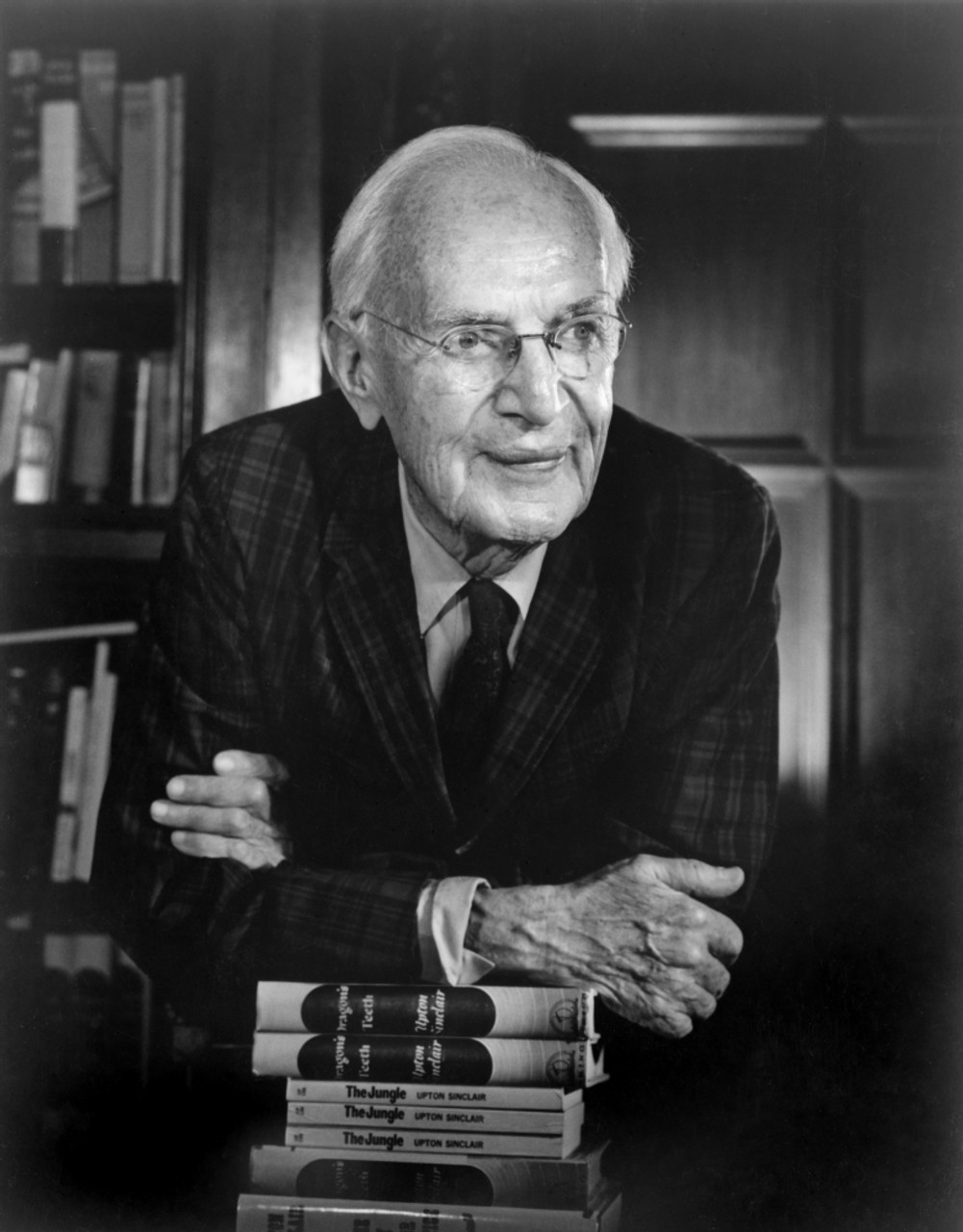
Upton Sinclair, With Two Of Many Books. Everett Collection.
SINCLAIR: Life & Career
Upton Sinclair (Sept. 20, 1878 – Nov. 25, 1968) was an American novelist of social protest and political matters, popularly known for his 1906 "The Jungle."
The Jungle
Sinclair had composed The Jungle to reveal the appalling conditions within the meat-packing industry. His description of “diseased, rotten, and contaminated meat” had the public astounded, and ultimately became a catalyst for new federal food safety laws in the United States.
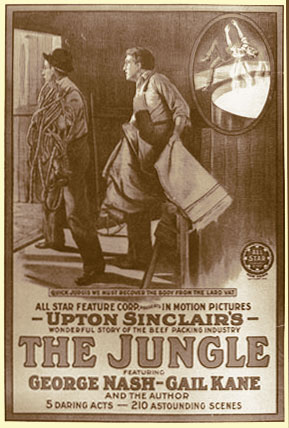
The Jungle, by Upton Sinclair. 1906. FDA.
Factories were plastered with unsanitary elements, dangerous machinery, and even chemicals within certain food products.
"Making link sausages--machines stuff 10 ft. per second. Swift & Co.'s
House, Chicago, U.S.A." Library Of Congress.
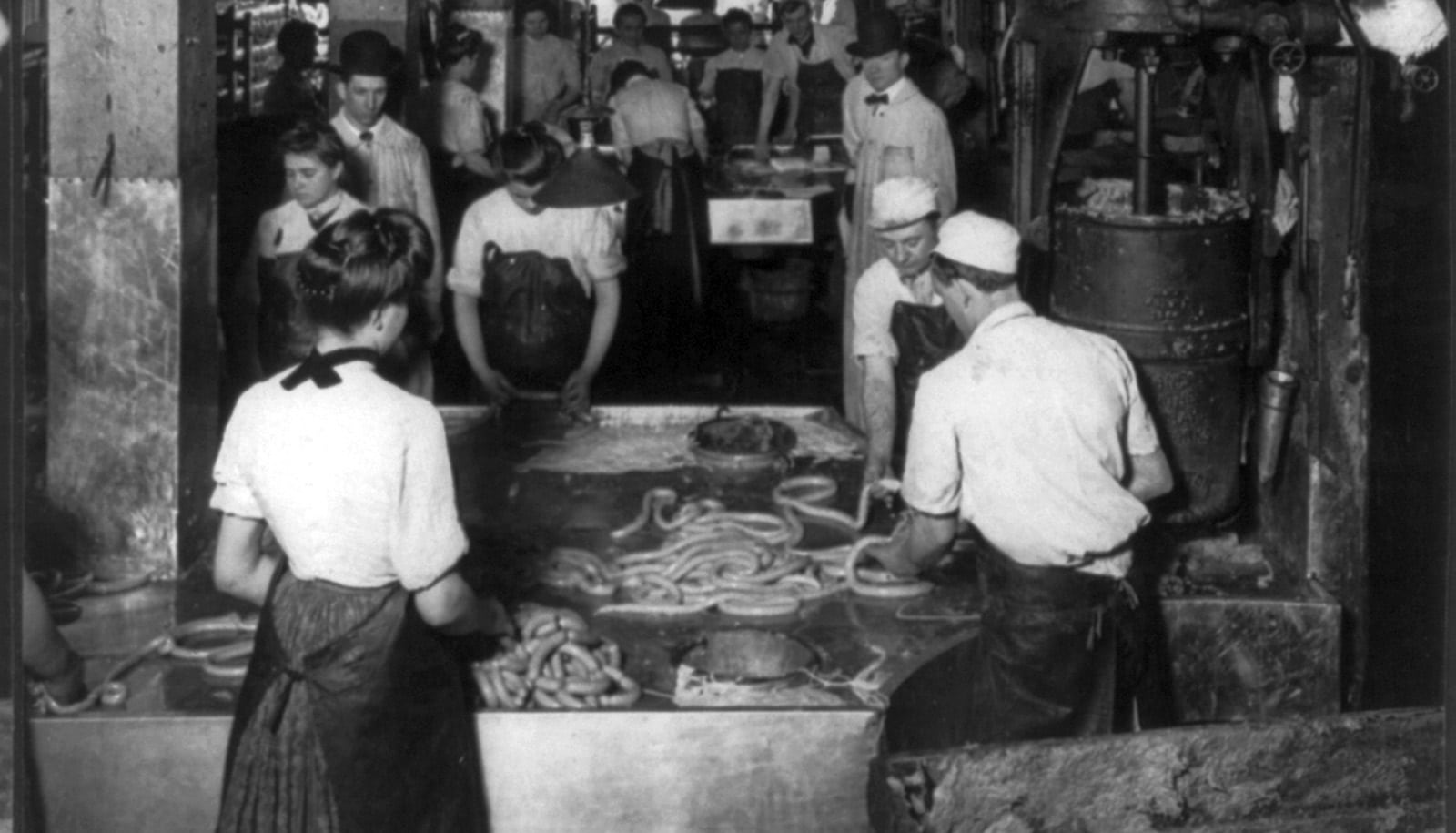
How "The Jungle" Changed American Food | The Poison Squad. Feb 13, 2020. PBS Ⓒ.
Sinclair had voiced the corrupt truth of work conditions in factories within The Jungle as
well. He continued to preach for reformed labor circumstances thereafter.
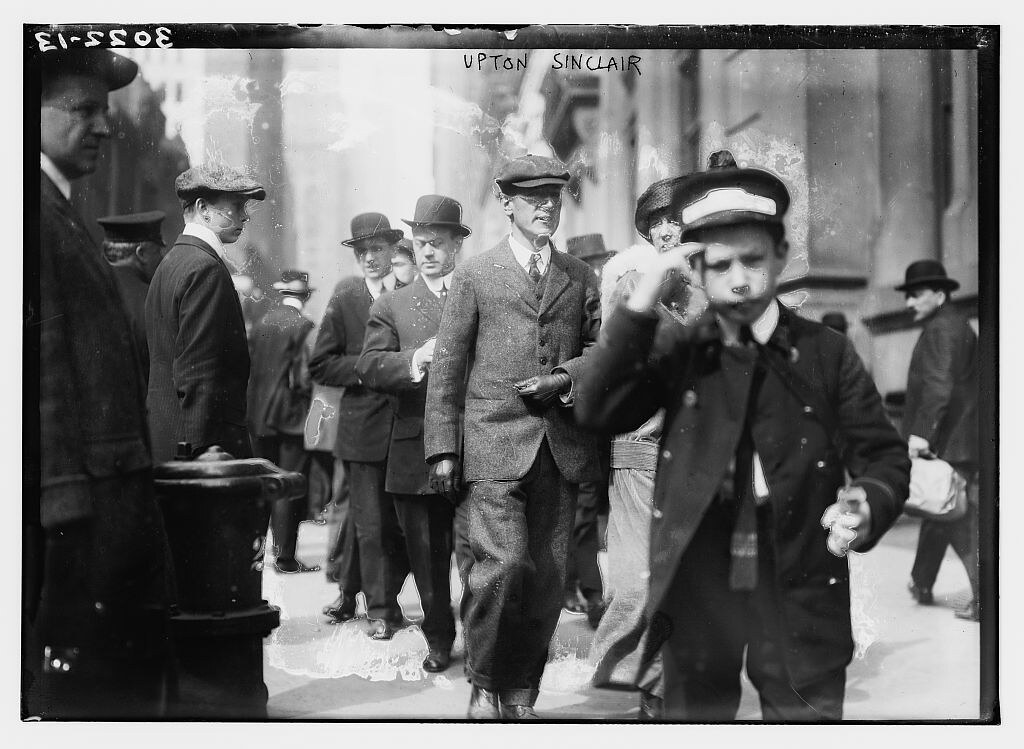
Upton Sinclair, Jr., arrested on April 29, 1914 for protesting conditions of Colorado coal miners. New York City.
Muckrakers like Upton Sinclair presented the conflict of potentially dangerous food manufacturing practices to America's attention, then declaring the 1906 Pure Food and Drug Act.
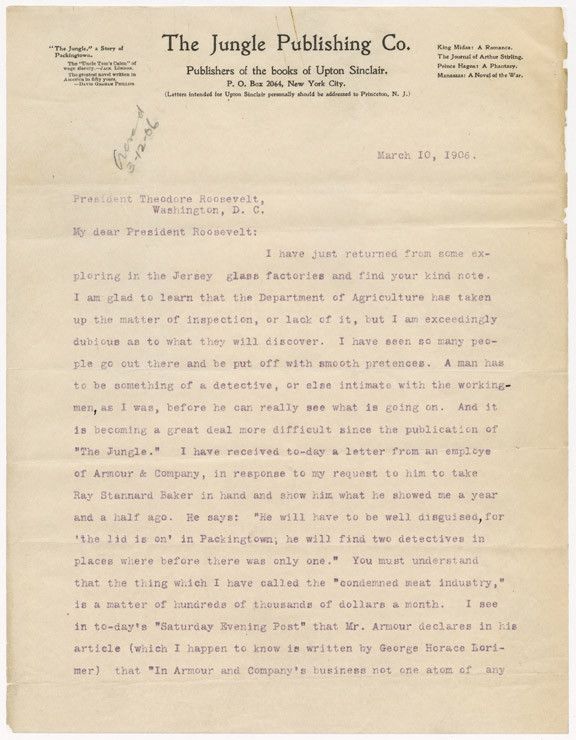
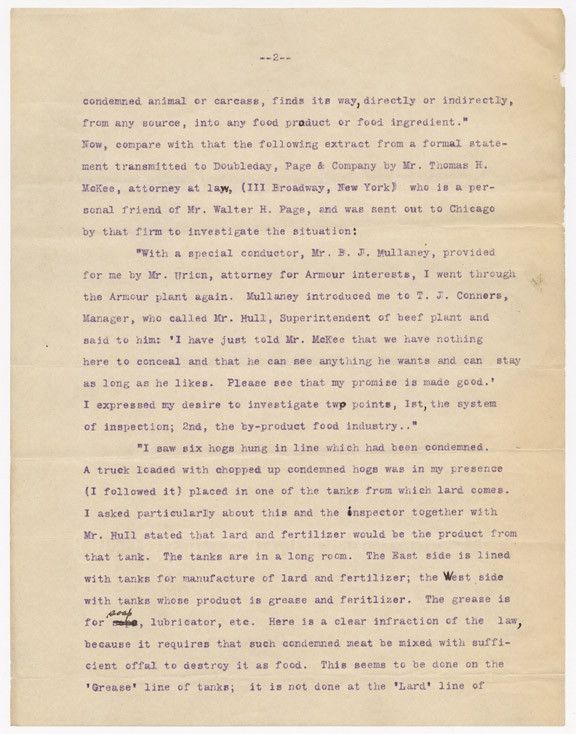
Upton Sinclair to President Theodore Roosevelt, praising the presence of federal inspectors in factories.
3/10/1906; Letters Received, 1893-1906. Records of the Office of the Secretary of Agriculture.